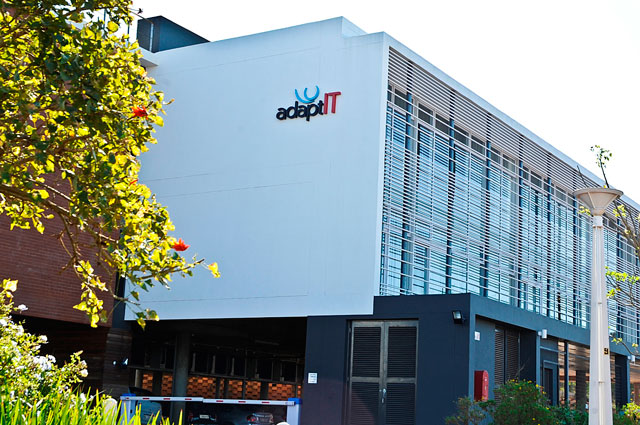
Some companies are more robust in the face of a consumer downturn than others, and companies that provide vital services are always going to fare better than those that rely on discretionary spend.
Software and service provider Adapt IT is proving that it is more resilient than most. It sells bespoke software that helps clients in the manufacturing, education, energy and financial services industries run their businesses more efficiently. In the first six months of the year — typically its weaker half — the company grew headline earnings per share by 42% to 23,96c, up from 35% growth in the previous comparative period.
Turnover grew by 19% to R310m, with organic and acquisitive growth contributing 13% and 6% respectively. Growth in the cost of sales was flat, while administration and sales costs declined as a percentage of profit. Margins improved from 14% to 16% and profit from operations grew by 50% to R53m.
What stands the company in good stead is its business model. The company owns its own intellectual property, as it develops software that sits on top of globally dominant systems like SAP and Oracle. “Whether it’s an HR and payroll application, or manufacturing system or a costing system, it’s designed to help customers run their businesses more efficiently,” says Keith McLachlan, fund manager at AlphaWealth. “Most customers will think long and hard before they stop paying their licence fees.”
In addition, the bolt-on acquisition strategy has seen the company diversify its technological base as well as sector, customer reach and geographic exposure, which is paying off in the tough climate.
Adapt IT CEO Sbu Shabalala notes that customers are taking strain in the current environment. “Look at the manufacturing sector [which accounts for 36% of turnover], the sector is bleeding and capex budgets are being squeezed.”
Adapt IT’s “software as a service” model is well suited for this environment. “Our service becomes part of a customer’s operating budget, which means clients pay as they use the service. Companies do not have to invest large capex amounts with us and this model is working well.”
Cloud computing and software as a service is where ICT is going, he says.

Helping to keep its cost of sales down is the fact that the model is infinitely scalable; once the company has developed a solution — for instance a university management solution — the cost of on-selling and supporting additional customers is negligible. In addition, software is easy to install and support remotely, making geography irrelevant.
At least 28% of Adapt IT’s turnover is now generated outside South Africa. “Look at the North American business. They didn’t buy that, that’s all organic growth,” says McLachlan. “The company is on-selling quietly to customers around the world.”
That said, turnover and profits grew slower than in the equivalent half last year, when it grew by 38% and 85% respectively.
“This is not something to be concerned about,” says McLachlan. “The previous numbers were bolstered by acquisitive activity. These results are better than expected.”
In line with its business model, which is premised on organic and acquisitive growth, Adapt IT acquired 100% of CQS Investment Holdings effective 1 July 2015. Competition Commission approval was only granted in December, which means it made no contribution to profits in the interim results, although acquisition costs will have been absorbed. Post the half-year, it acquired a small education management company in New Zealand, though this was not a notifiable event.
The benefits of the acquisitions will come through in the full-year results. The share price rose by 2% to R13,26 on Monday.
- This piece was first published on Moneyweb and is used here with permission




